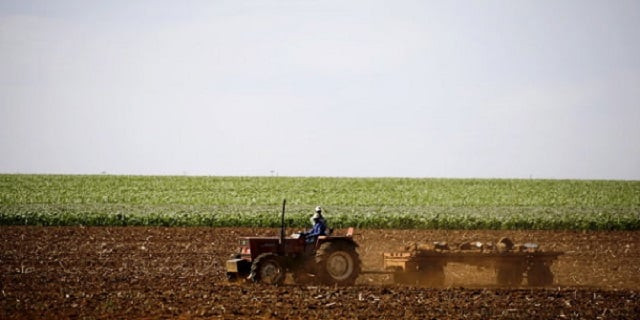Protect small farms to meet growing global food needs, study says
The world's food production will need to increase by 70 per cent by 2050

PHOTO: REUTERS
More than half of the world's food is produced by small and medium farmers, particularly in Africa and Asia, said researchers at the Commonwealth Scientific and Industrial Research Organisation (CSIRO) in Australia.
Sustainable agriculture: ‘Achieving food security the biggest challenge’
While large-scale plantation agriculture is expanding, small farms with less than 50 acres of land should be protected because they produce more diverse and nutritious food, the study said.
"It is vital that we protect and support small farms and more diverse agriculture so as to ensure sustainable and nutritional food production," Mario Herrero, the study's lead author, said in a statement. "Large farms, in contrast are less diverse."
Big farms larger than 124 acres dominate food production in the western hemisphere, Australia and New Zealand, producing more than three quarters of the cereals, livestock and fruit in those regions, the study said.
Sustainable farming: UAF aims to revolutionise agriculture with innovation
In South Asia, sub-Saharan Africa and Southeast Asia, small farms produce about 75 per cent of the food, the study said.
Enshrining formal land rights for small producers is an effective way of ensuring they can continue farming, previous studies have said.
The world's food production will need to increase by 70 per cent by 2050, the study said, with the global population forecast to rise to 9.7 billion by then.
Both big and small farms are needed to meet this goal, said the study, but small producers should not be neglected by governments and lenders because they generally produce more nutritious food than their larger counter-parts.
About 70 per cent of the world's population lacks legally registered titles to their land, according to the World Bank, and small farmers in developing countries are particularly affected by insecure land access.



















COMMENTS
Comments are moderated and generally will be posted if they are on-topic and not abusive.
For more information, please see our Comments FAQ